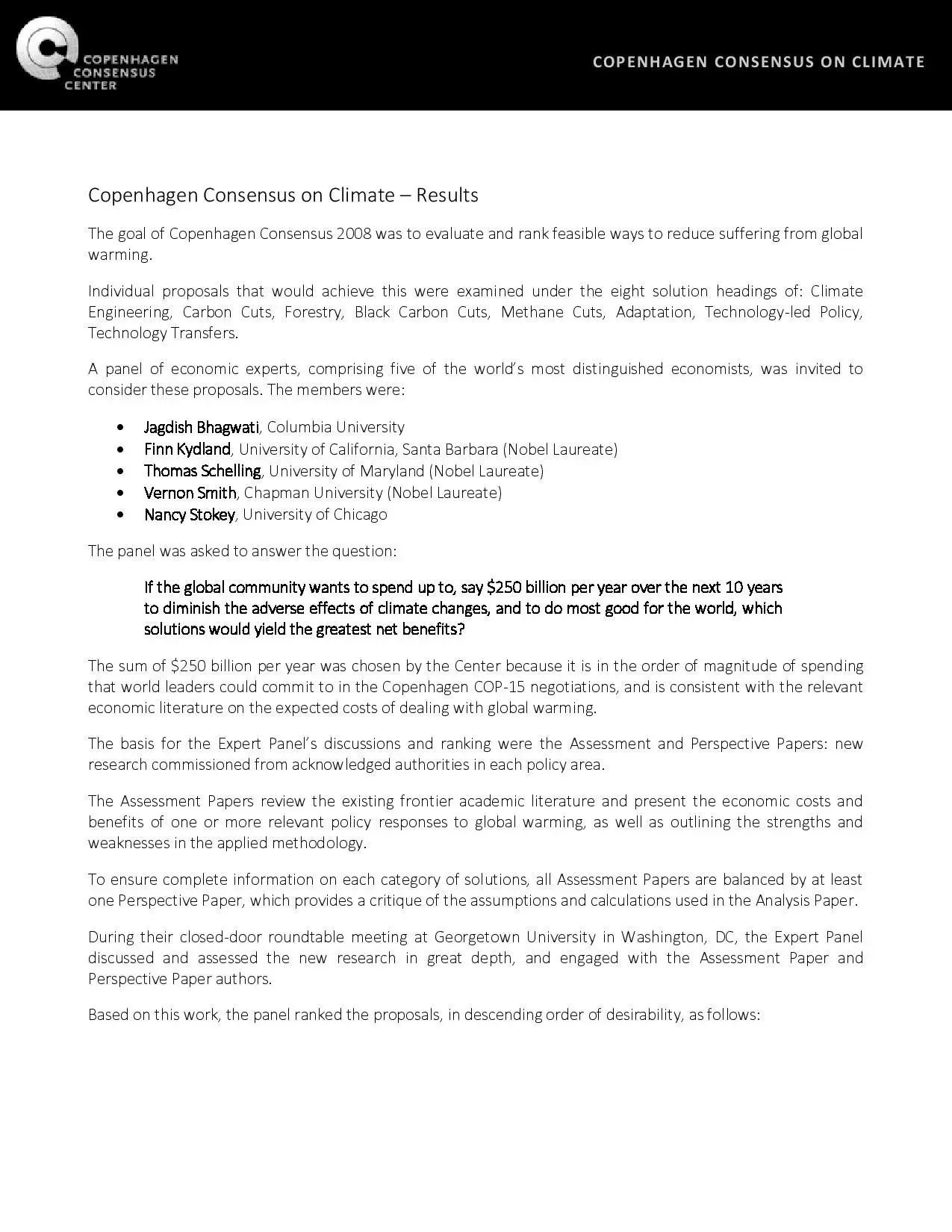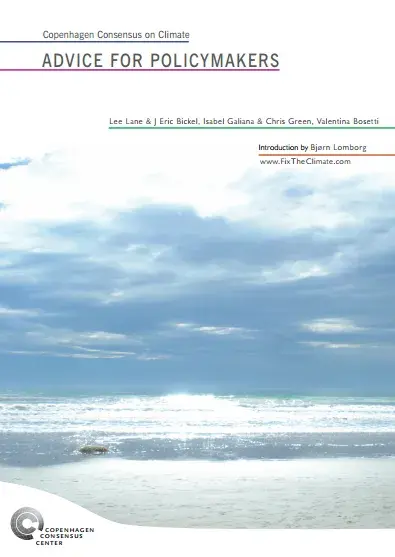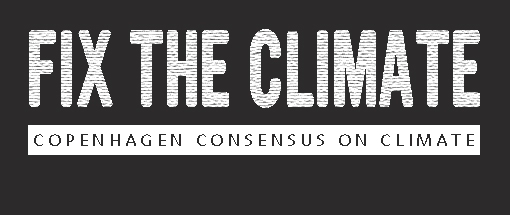Results
The Copenhagen Consensus Center assembled an Expert Panel to consider the research presented here. The Expert Panel of five world-class economists – including three recipients of the Nobel Prize – met in September 2009 to deliberate and form conclusions about which solution to climate change is the most promising.
They created the following prioritized list, outlining the most - and least - effective responses to global warming.
| “Very Good” | 1 | Climate Engineering | Marine Cloud Whitening |
| 2 | Technology | Energy R&D | |
| 3 | Climate Engineering | Stratospheric Aerosol Insertion | |
| 4 | Technology | Carbon Storage R&D | |
| “Good” | 5 | Adaptation | Planning for adaptation |
| 6 | Climate Engineering | Air Capture R&D | |
| “Fair” | 7 | Technology Transfers | Technology Transfers |
| 8 | Forestry | Expand and Protect Forests | |
| 9 | Cut Black Carbon | Stoves in Developing Nations | |
| “Poor” | 10 | Cut Methane | Methane Reduction Portfolio |
| 11 | Cut Black Carbon | Diesel Vehicle Emissions | |
| 12 | Cut Carbon | $20 OECD CO2 Tax | |
| “Very Poor” | 13 | Cut Carbon | $0.50 Global CO2 Tax |
| 14 | Cut Carbon | $3 Global CO2 Tax | |
| 15 | Cut Carbon | $68 Global CO2 Tax |
Outcome Document
The panel of economic experts, comprising five of the world’s most distinguished economists, considered proposals prepared by 40 of the world top climate economists. The members were:
- Jagdish Bhagwati, Columbia University
- Finn Kydland, University of California, Santa Barbara (Nobel Laureate)
- Thomas Schelling, University of Maryland (Nobel Laureate)
- Vernon Smith, Chapman University (Nobel Laureate)
- Nancy Stokey, University of Chicago
Their prioritized list of solutions to global warming is presented in this document.

Policy advice
In 2009, the Copenhagen Consensus Center commissioned new research on the economics and feasibility of different responses to global warming, and then used Nobel Laureate economists to evaluate that research and identify the best and worst ways to counter this global challenge.
Their work centered around the key question, "If the global community wants to spend up to, say, $250 billion per year over the next 10 years to diminish the adverse effects of climate changes, and to do the most good for the world, which solutions would yield the greatest net benefits?"
Their analysis has been gathered in a volume entitled, ADVICE FOR POLICYMAKERS, prepared by Lee Lane, J Eric Bickel, Isabel Galiana, Chris Green, and Valentina Bosetti, with an introduction by Bjørn Lomborg. The document can be downloaded here.


